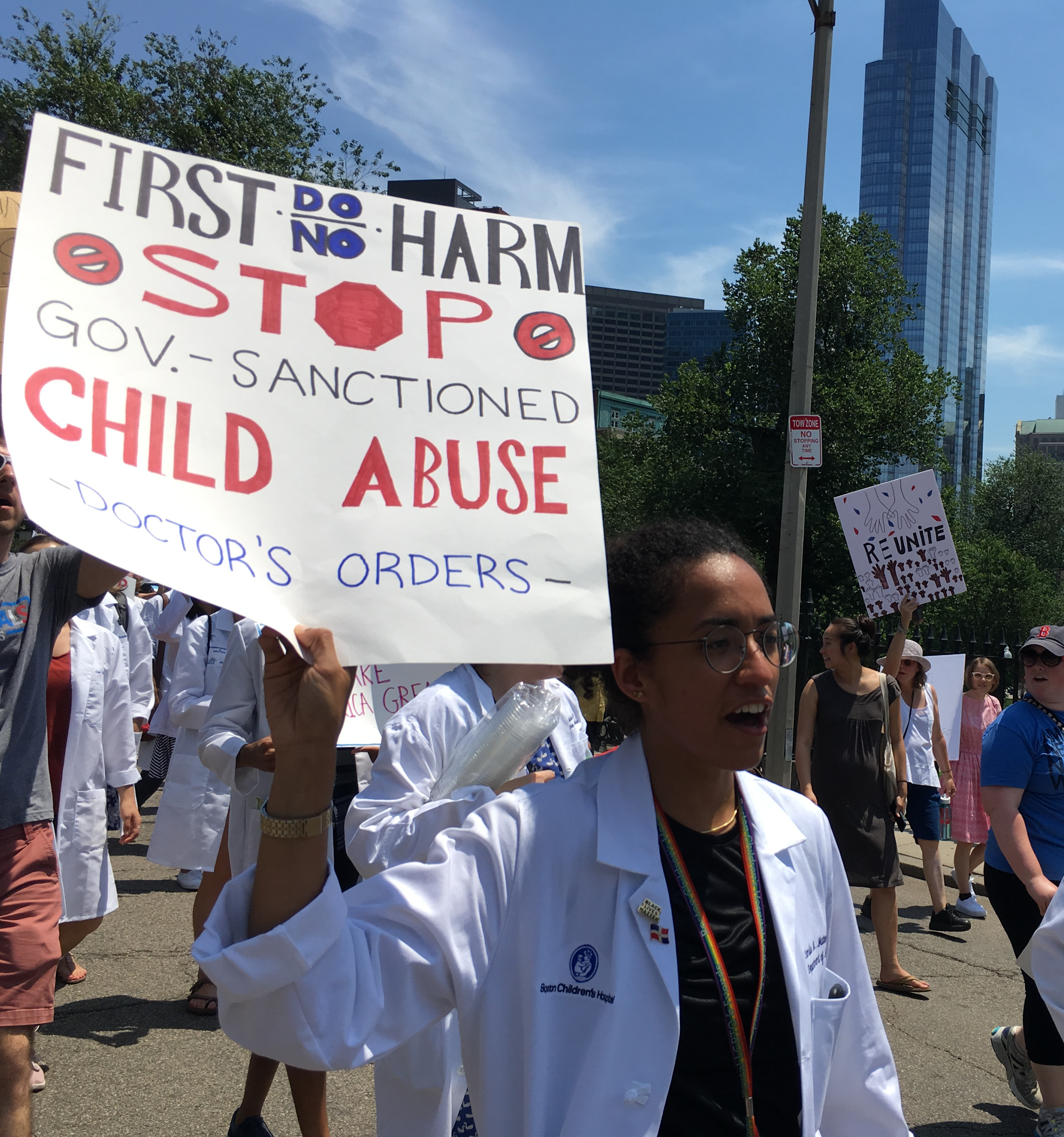ONgoing initiative
HEALTHCARE BEST PRACTICES
Fear of immigration enforcement creates chronic anxiety for immigrant families and prompts them to avoid using vital healthcare services. Here are a few pointers for healthcare centers:
1. Send the message that all are welcome.
Signs should be posted everywhere (e.g. waiting rooms, hallways, exam rooms, bathrooms).
2. Make Know Your Rights information and immigration resources available.
Provide information materials in multiple languages everywhere (e.g. waiting rooms, hallways, exam rooms, bathrooms); consider playing informational videos in the waiting room.
Have lots of Red Cards available, which immigrants can give to immigration enforcement to exert their rights.
3. Educate healthcare staff about immigration policy & its effects on health.
Review educational modules under Education section.
Email maimmigranthealth@gmail.com to arrange a training.
4. Create a formal policy to NOT share patient information with ICE.
Health centers & healthcare providers to NOT have to share patient information with immigration or law enforcement without a warrant. All healthcare facilities should have formal policies & procedures for what to do if ICE is seeking information about a patient.
All staff should be trained to follow the formal protocol.
There should be a clear chain of command for who should be informed if ICE is requesting patient information.
For links to sample policies, email maimmigranthealth@gmail.com to request
See Massachusetts Attorney General’s Office Guidance to Medical Providers (1/31/25)
5. Post signs to designate clinic waiting areas as “Private spaces for patients and those accompanying them only.”
On January 20, 2025, ICE/CBP rescinded the Sensitive locations policy. Given this it is vital to pay attention to which areas of the clinic remain private and potentially posting signage to designate waiting areas “private". More information can be found here.
6. Train your financial services and registration staff regarding benefit eligibility for immigrants.
During the last Trump administration, millions of immigrant patients stopped accessing health benefits and many dropped benefits for which they were eligible due to fear that their immigration status would be impacted. Although the Public Charge policy was only expanded to include benefits for a little over a year, the chilling effect from the policy was substantially more harmful than the policy itself. Sources from within the incoming administration have noted policies will likely be changed to change the definition of public charge to once again consider use of some benefits to be “negative factors” when reviewing visa and green card applications. However, any policy change will typically be associated with a grace period to allow immigrants to review and make informed decisions with legal counsel regarding their benefits. For this reason, we should continue to urge our immigrant patients to:
Keep their benefits It’s better to keep benefits that help people survive and be economically self-sufficient, than to refuse benefits and experience harm. It is also notable that during the previous administration many people dropped benefits that were completely unrelated to the public charge rule, such as WIC, or state (as opposed to federally sponsored) health coverage, which was notincluded in the rule.
Visit the Protecting Immigrant Families website for up to date information on the public charge issue.
7. Start an immigrant Health Task Force
During times of great flux and transition, mobilization and coordination, as well as the ability to rapidly coordinate, hear from the front lines and verify concerns with professionals is invaluable. An immigrant health task force can help by improving communication from the front lines to senior leadership
Who should be represented?
General Counsel’s Office, Security, Representative from senior leadership such as a Chief Community Officer, government affairs, representative from major departments, leadership from financial services and registration departments, supervisor for case management/social workers, community partners/CBOs, and marketing.
Know Your Healthcare Rights
More details about the rights of patients and healthcare providers, are available on the website of National Immigrant Law Center: Healthcare and Health Insurance for Immigrants.

